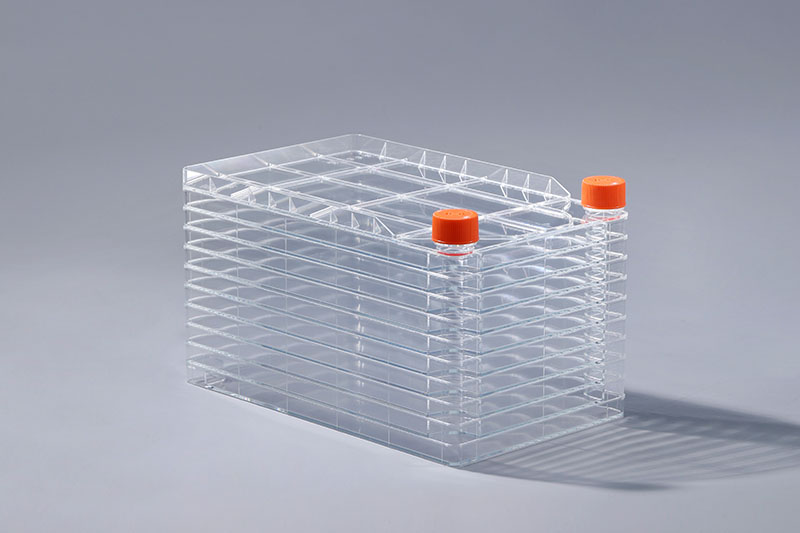Importance of a sterile environment for cells in a cell factory
Cell factories are a type of consumables that are widely used in large-scale cell culture. Cells are very fragile organisms. The in vitro culture of cells requires a specific environment, of which sterility is the basic requirement.
In vivo, the detoxification system and immune system can resist the invasion of microorganisms or other harmful substances, but in the process of in vitro culture, cells lack the protection of the body's immune system and lose the ability to defend against microorganisms and detoxify harmful substances. To ensure that cells can grow and reproduce in vitro, it is necessary to ensure a sterile work area, good personal hygiene, sterile reagents and media, and aseptic handling.
Common microbial contaminations in cell factory culture include mycoplasma, bacteria, and fungi. Mycoplasma has no lethal toxicity, can coexist with cells for a long time, and has potential effects on cells, but it is small in size and difficult to identify. It can be detected by means of lichen red or Hoechst33342 staining. Bacteria proliferate quickly, can multiply in a large amount in a short time, and produce toxins to kill cells. There are many kinds of fungi, which are visible to the naked eye, floating on the surface of the culture medium, and can be filamentous, tubular or dendritic.
If bacterial contamination occurs in the cells in the cell factory, the source of contamination should be analyzed according to the specific situation, and then the treatment should be carried out according to the contamination situation. If the contamination is very serious, it is recommended to discard the culture and re-cultivate it.

评论
发表评论